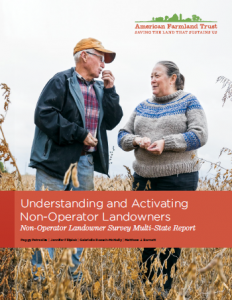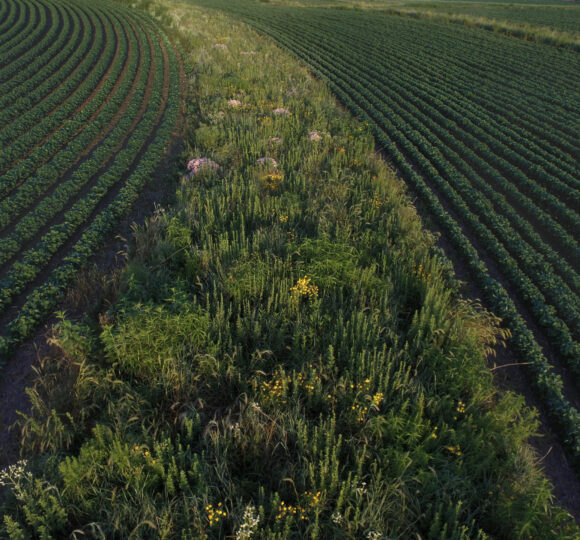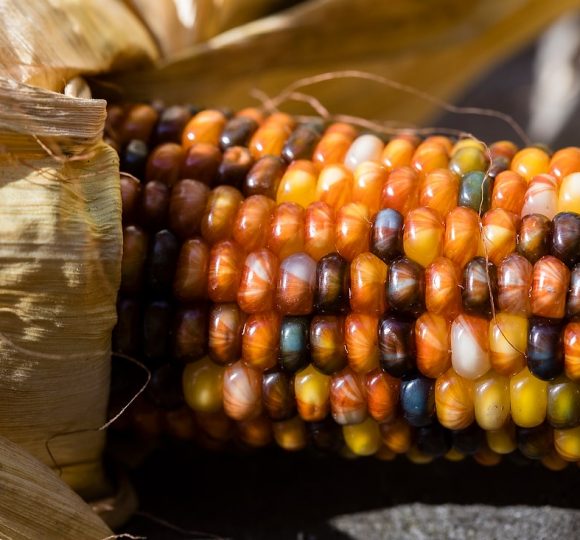Nearly 40% of U.S. farmland is rented or leased from agricultural landowners, the majority of whom are non-operating landowners (NOLs). NOLs are increasingly identified as a group of landowners we must pay attention to when discussing environmental issues on agricultural lands. In 2018, American Farmland Trust implemented a multi-state survey of NOLs who rent some or all of their land to a farm operator, providing the most comprehensive data set to date on NOLs. The survey goals included:
- Learn more about NOLs in general (e.g. age, gender, familiarity with farming).
- Identify ways in which to overcome barriers to resource management decision-making.
- Increase understanding of the land management decision-making processes of NOLs.
- Use the survey information gained to improve incentive mechanisms and policies aimed at promoting resource conservation.
This report presents select findings from the survey. We begin by providing an overview of the sample and comparisons across states. We then focus on the similarities and differences of NOLs first by gender, and then by level of farming experience. We conclude the report with a “Call to Action”, recommending five actions for moving forward in the work with NOLs, based on the survey findings. Updated in September 2020, the report now includes survey data from Pennsylvania and Virginia.






